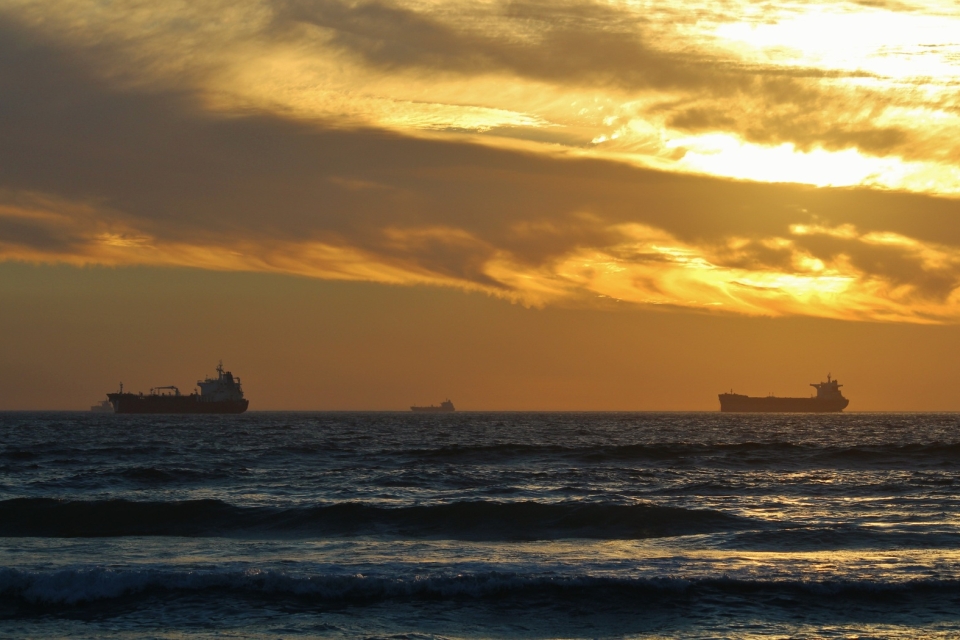Together with international partners, the Netherlands is discussing the situation in the Red Sea, which may lead to more protection for ships. The largest container carriers have already announced they will no longer sail in the area after several ships have been attacked by Houthi rebels in recent weeks.
Houthi militia have attacked merchant ships passing through the Red Sea and Gulf of Aden with missiles and drones in recent weeks. Houthi militia in Yemen, which has stated sympathies with Hamas and according to the US Government are being armed by Iran, has claimed the missile and drone attacks on merchant ships are in response to the conflict in Gaza.
It could trigger a global supply chain crisis, according to industry analysts. Peter Sand, chief analyst at Xeneta, an ocean freight shipping data and intelligence platform, says: ‘All ships transiting the Suez Canal must sail through the Red Sea and Gulf of Aden and the Houthi militia has made clear that any vessel is a target. I do not believe the Suez Canal will close, however, if there are further significant escalations then we cannot rule it out, even if it is just for a few days.’
Also read: IMB: Piracy on the rise again, regional efforts needed
International negotiations
The Dutch Minister of Defence, Kajsa Ollongren, revealed that international negotiations are underway in the Dutch TV programme WNL Op Zondag: ‘We do consult with our international partners, and also with the Americans, on how to deal with this. And actually you can already see, it’s not just the war in Gaza. We fear an escalation, but it is actually already happening. Because the Houthi attacks from Yemen on shipping are directly related to the war in Gaza.’
Ollongren adds: ‘I think the shipping industry is drawing the only right conclusion right now, which is not to take that risk. And we want to work together, with our international partners, to see how we want to deal with this.’
When asked whether military escorts are on the table, Ollongren says it will have to be looked at. ‘We now often protect against piracy, but here we are talking about missiles and drones, i.e. attacks from the air. The current protection then does not suffice. So that’s what the international consultations, which are going on now, are about.’
Trade organisations call for action
Trade organisations, such as the European Community Shipowners’ Associations (ECSA), the European Transport Workers’ Federation (ETF) and the International Chamber of Shipping have expressed concern over the situation. ECSA and ITF, for example have called for immediate action to address the alarming situation, warning that ‘the lives and safety of our seafarers are put at risk, with attacks increasing on a daily basis’.
ECSA adds that shipping is the cornerstone of Europe’s security – from energy to food and supply chain security. Protecting key shipping routes and the international principle of freedom of navigation is essential to guarantee the security of the continent.
ICS states that ‘These attacks are a flagrant breach of international law. States with influence in the region should, as a matter of urgency, work to stop the actions of the Houthis in attacking seafarers and merchant ships, and de-escalate what is now an extremely serious threat to international trade. […] Furthermore, the full maritime security architecture in the region should be brought to bear to end these attacks and protect our seafarers and merchant shipping.’
Also read: IMB warns of resurgence of piracy in Gulf of Guinea
Shipping companies avoid the area
Among others, a missile was fired at the Maersk Gibraltar while en route from Salalah in Oman to Jeddah in Saudi Arabia on Thursday, 14 December, which did not strike the ship. Other attacks include missile strikes on a Norwegian flagged vessel in the Bab el-Mandeb Strait, a container ship operating between Asia and the Mediterranean and a vessel operated by shipping company Ardmore.
This has led the world’s largest container carriers to announce they will stop sailing across the Red Sea for the time being. This involves Danish carrier Maersk, German carrier Hapag-Lloyd, Italian MSC and French carrier CMA CGM.
ICS notes that some companies will reroute around the Cape of Good Hope, which adds cost and delay to global trade. ICS: ‘The Red Sea is a crucial waterway, linking Europe and Asia. Currently, twelve per cent of global trade passes through the Red Sea.’
Sand states: ‘We may also see the cost of moving freight by ocean increase dramatically. Depending on the scale and duration of any disruption at the Suez Canal, we could see ocean freight shipping rates increase by anything up to 100 per cent.’
In the meantime, US and UK naval ships in the area have already been assisting merchant ships. US Central Command reports that the USS Carney has downed fourteen unmanned aerial systems launched as a drone wave from Houthi-controlled areas of Yemen, the UK’s HMS Diamond destroying another one.








